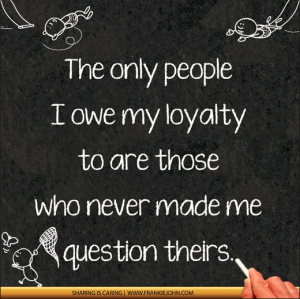Maybe YOUR Loyalty Stinks
on Wednesday, 08 July 2015.
It’s hard to find good help these days. Employees just aren’t loyal anymore. Why can’t they just do what I tell them to do. We often hear these complaints within our organizations. But this isn’t exclusive to corporate America. Educational facilities have the same employee challenges that other businesses experience. In fact, in our ed tech world, some of these challenges may run deeper because of the training necessary to get a staff member “schooled” as a technician, designer, or installer of equipment and projects for which there is little or no formal schooling.
How can you encourage employee engagement without compromising the rest of your team? How can you get more long-term productivity and loyalty out of your staff?
Discover what motivates (your) people: Discovery can be hard work and time consuming. But since your departmental productivity and project timeliness rely on your team, discovery is a worthwhile journey. Motivation isn’t always money. It could be growth potential, professional development opportunities, vacation time, a defined career path, recognition. Whatever “it” is, understand that it can be highly individualized. Don’t just observe your employees but ASK them what is important to them. Listen, outline, and then act on it. Motivating...
Offer guidance: So often I hear that managers and supervisors don’t delegate work because “it’s easier for me to do it myself than to show someone else how to do it.” Well, you didn’t absorb through osmosis the knowledge necessary to perform that task. You were in one way or other given the opportunity to learn. Be secure enough in your hiring decisions (or if s/he wasn’t your hire, then your employee) to give guidance and allow that person to learn. The opportunity to learn is powerful (see #1). But don’t let the employee flounder- offer guidance without taking over the task. Do not remove the responsibility from your employee. But remember that you have built an armory full of experience and it is your responsibility to share experiential guidance with others.
Give direction and be direct: Similar to guidance, but not quite since guidance can be subtle. I am telling you to be direct in your instructions and expectations. Understanding your expectations is a powerful tool for your employees. This also means that you may have to critique their work. This doesn’t mean to attack their progress. It means that in order to be confident in handing off...
